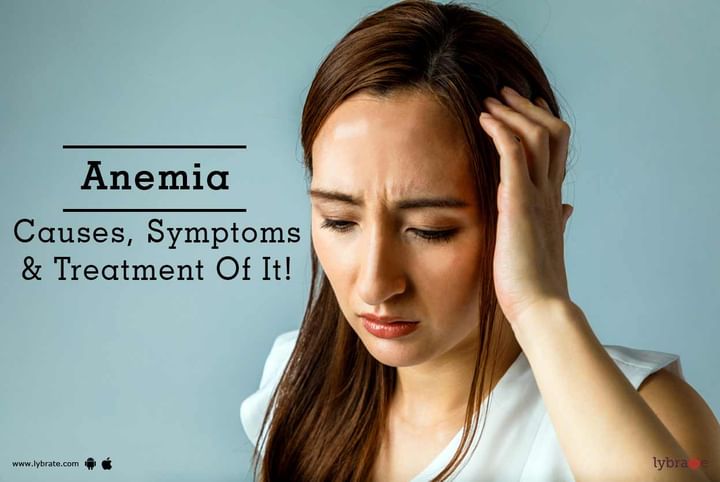Anemia - Causes, Symptoms & Treatment Of It!
What is anemia?
Anemia is due to lack of haemoglobin in the blood which is below the normal level or due to less than normal levels of red blood cells in blood.
The haemoglobin helps carry oxygen in blood. Lack of haemoglobin thus causes deficiency of life giving oxygen to vital organs. (1-4)
Types of anemia
There are various causes of anemia. It could be due to:
- Decreased production of RBCs in blood
- Increased blood loss OR
- Excessive destruction of RBCs
- Causes of anemia
- Anemia most commonly occurs due to nutritional problems. This includes lack of iron in the diet.
- Iron deficiency is the commonest form of anemia.
- In the United States 7% of toddlers ages 1 to 2 years old and 9-16% of menstruating women suffer from iron deficiency.
- The poorer nations 30-70% of the people have iron deficiency anemia.
Iron and anemia
- Since iron is needed for the manufacture of haemoglobin in the body its deficiency can lead to anemia.
- Iron is found in meat, dried fruit and some vegetables.
- Lack of iron may be caused due to bleeding especially in stomach ulcers or within the intestines.
- Women before menopause commonly suffer from iron deficiency anemia due to heavy periods and increased demands during pregnancy.
Vitamins and anemia
- Certain vitamins like vitamin B12 and folic acid or folate are also essential in the normal production of RBCs in blood. Their lack in diet may lead to anemia.
- Both vitamin B12 deficiency and folate deficiency are more common in older people, affecting around 1 in 10 people above the age of 75.
- There is an inherited condition called Pernicious anemia where patients find it difficult to use the vitamin B 12 in diet for production of healthy RBCs. This is a rare condition and affects 1 in 10,000 people in northern Europe.
Other causes of anemia
- Increased blood loss due to surgery or major trauma may lead to anemia.
- Excessive destruction of RBCs may occur due to certain conditions called haemolytic anemias. These are often inherited and include Sickle cell anemia, Thalassemia etc. Anemia can also occur in severe infections, cancers and due to exposure to a drug or toxin.
- For example, the RBCs are made in bone marrow. If there is cancer in the marrows a shortage of good red blood cells results. This is called aplastic anaemia and may also occur with blood cancers like leukaemia.
Symptoms
Anemia signs and symptoms vary depending on the cause of your anemia. They may include:
- Fatigue
- Weakness
- Pale or yellowish skin
- Irregular heartbeats
- Shortness of breath
- Dizziness or lightheadedness
- Chest pain
- Cold hands and feet
- Headache
At first anemia can be so mild that it goes unnoticed. But symptoms worsen as anemia worsens.
Treatment of anemia
Treatment depends on the cause of the anaemia. If the anaemia is due to a lack of iron, eating iron-rich food or iron supplements may be given. If, however, the cause of anemia is deeper like internal bleeding or cancers, the cause should be explored before treatment. When the anaemia is more severe, a blood transfusion may be prescribed.



+1.svg)
